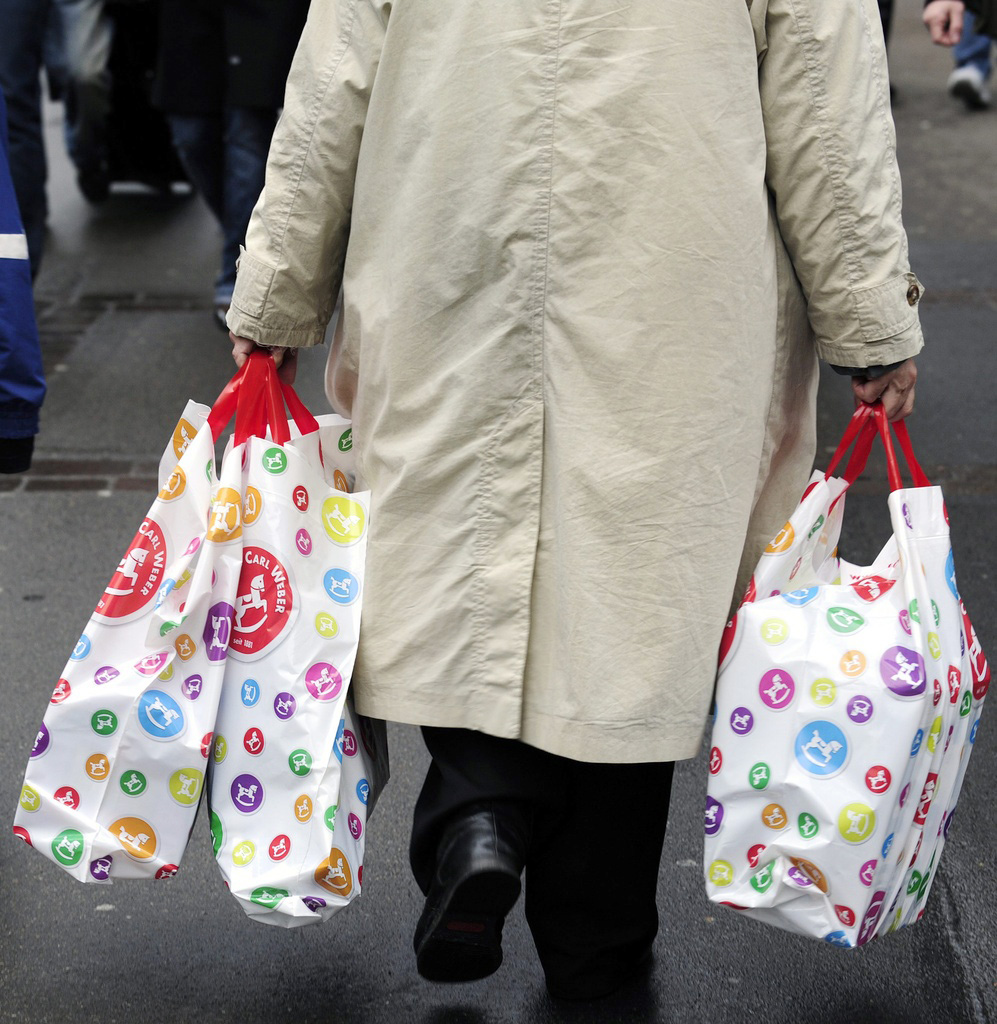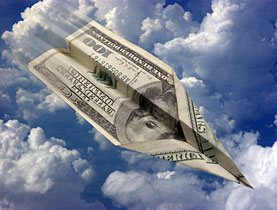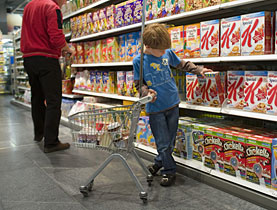Inflation threat divides opinion

The threat of galloping inflation becoming the next evil to afflict the Swiss – and global – economy has forecasters gazing into different crystal balls.
Many economists believe low interest rates combined with a flood of financial stimulation is the perfect recipe to combat rampant price hikes. But others believe sensible monetary policy would nip the problem in the bud.
Speaking at the Hedge Funds Zurich conference on Thursday, trader and author Nassim Taleb warned the world to brace for a round of “mega hyperinflation”.
“We are facing today the worst uncertainty. We are very rapidly approaching the risk of zero stability,” he said.
Taleb, author of acclaimed economic book The Black Swan, was one of the few observers to predict the catastrophic financial crisis. And he forecast at least one European country would follow Dubai’s recent debt related crisis – most likely Greece or Ireland.
Taleb’s pessimistic view on the global economy would not particularly fall on Switzerland’s shoulders, according to Julius Bär chief economist Janwillem Acket. Despite low interest rates, Switzerland has a relatively small national debt and government stimulus packages were modest in comparison with other states.
Acket also believed that Switzerland has “natural stabilisers” against the threat of uncontrolled inflation.
“We have a high degree of competition, an open market and very critical customers who are not willing to pay at any price. So inflation cannot go completely over the top in Switzerland,” he told swissinfo.ch.
Signs of recovery
Nevertheless, the Swiss National Bank (SNB) faces a tricky task timing its policy to match economic recovery, he added. In Acket’s view, it is crucial that Switzerland does not delay too long its exit from low interest rates and abundant supply of cheap money.
Figures released by the State Secretariat for Economic Affairs this week showed a 0.3 per cent growth in the Swiss real economy in the third quarter of this year. Consumer spending and exports also saw small gains.
Julius Bär believes that Swiss gross domestic product (GDP) will post a negative 1.5 per cent reading at the end of this year, but increase by 1.4 per cent in 2010 and 1.8 per cent the following year.
The SNB is currently focusing much of its efforts on keeping the Swiss franc pegged to around €1.50 against the euro, according to Acket. This level would not hurt exporters too much while retaining enough spending power to buy in vital commodities.
The policy requires the SNB to mirror some of the European Central Bank’s (ECB) decisions.
“The fact that the SNB cannot completely isolate its exit strategy from the ECB means there could be a risk that it could be dragged into exiting too late because it does not want the franc to become too strong. That could become inflationary going forward,” Acket told swissinfo.ch.
The ECB announced on Friday that it would begin to slowly unwind its rescue measures in the near future.
Decouple from Europe
However, Acket does not expect inflationary pressure to raise its head until late into 2011 in developed countries that still have a lot of repair work to do on their economies. Julius Bär has a 65 per cent probability rating that 2010 will signal slow, bumpy growth with modest inflation for such economies.
Acket also believes that it is not only the SNB that should think about decoupling strategy from the Eurozone. He urged Swiss export companies to end their over-reliance on the market and look for new customers elsewhere.
“Swiss exporters have to diversify away from the slow, sluggish European market and get more clout with the emerging economies where their market share is currently tiny,” he told swissinfo.ch.
Matthew Allen, swissinfo.ch
Swiss GDP will contract by 1.5% this year but grow 1.4% in 2010 and 1.8% in 2011.
This compares with the US (-2.5%, 0.9%, 1.5%), the Eurozone (-4%, 1%, 1.3%), China (8.3%, 9.2%, 8.5%) and Japan (-5.2%, 1.2%, 1%).
The bank believes there is a 65% chance of growth being slow and bumpy in developed countries over the next 12 months with modest inflation. There is a 15% chance of deflation and negative growth in 2010 and 20% of stronger than expected growth and rampant inflation from 2011.
Switzerland’s debt is forecast to grow marginally next year, but remain below 50% of GDP.
The dollar is tipped to remain on par with the franc throughout next year and even dip to 95 Swiss cents at the end of 2010.
Against the euro, the franc (currently trading at €1.51) should also remain fairly constant, but strengthen slightly by the end of 2010.

In compliance with the JTI standards
More: SWI swissinfo.ch certified by the Journalism Trust Initiative




You can find an overview of ongoing debates with our journalists here . Please join us!
If you want to start a conversation about a topic raised in this article or want to report factual errors, email us at english@swissinfo.ch.